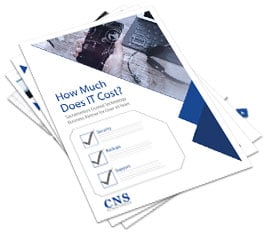
Should You Upgrade or Replace Your Devices? A Guide for Windows 10 Users
With Windows 10 support ending in October 2025, many businesses and individuals are facing a crucial decision: Should you upgrade your current devices to Windows 11, or is it time to invest in new hardware? The right choice depends on factors such as device compatibility, performance, cost, and long-term goals.
This guide will help you navigate the decision-making process to determine whether an upgrade or replacement is the best option for you.
Step 1: Check Compatibility
Before you make any decisions, check if your current hardware can handle Windows 11. Microsoft has set clear system requirements for the new operating system to ensure it runs smoothly and securely.
Key Requirements:
- 64-bit processor (1 GHz or faster with 2 or more cores)
- 4 GB of RAM (8 GB is recommended for optimal performance)
- 64 GB of storage
- TPM version 2.0 (Trusted Platform Module)
How to Check:
- Use Microsoft’s PC Health Check tool to evaluate your device’s compatibility.
- Alternatively, manually review your device’s specifications.
Outcome: If your device doesn’t meet the Windows 11 requirements, you may need to upgrade hardware components or consider replacing your device.
Step 2: Evaluate the Age of Your Devices
The age of your hardware plays a significant role in this decision. Devices over 5 years old often exhibit slower performance and may not be able to meet Windows 11’s system requirements.
Reasons to Replace Older Devices:
- They’re nearing the end of their life cycle.
- Upgrading components like RAM or storage may not offer a significant performance boost.
- Outdated firmware and hardware vulnerabilities can pose security risks.
Step 3: Assess Your Performance Needs
Does your current device meet your daily performance requirements? Evaluate your device’s speed, reliability, and scalability.
Consider the following:
- Speed: Are your devices lagging during critical tasks?
- Reliability: Do you encounter frequent crashes or system failures?
- Scalability: Can your current hardware handle future software updates and increased workloads?
When to Upgrade: If your device still meets your performance needs and runs well, upgrading to Windows 11 may be the most cost-effective solution.
When to Replace: If performance issues are disrupting productivity, replacing your device might be a better long-term investment, saving you from further downtime and inefficiency.
Step 4: Weigh the Costs
Your budget is always a key factor in deciding between upgrading and replacing.
Upgrading Existing Devices:
- Typically lower upfront costs (if compatible).
- Additional expenses may be required for hardware upgrades like extra RAM.
Replacing Devices:
- Higher upfront cost but offers better long-term value.
- New hardware designed for Windows 11’s features and security.
Step 5: Consider Future-Proofing
Newer devices are built with advanced technology that offers significant benefits:
- Enhanced security: Built-in encryption and more robust security features.
- Improved performance: Faster processing speeds, energy efficiency, and better hardware integration.
- Better compatibility: Modern devices are designed to work seamlessly with current applications and peripherals.
Investing in new hardware now can ensure your systems are ready for future growth, minimizing the risk of falling behind in terms of both performance and security.


Pro Tip: Involve an IT Professional
If you’re still uncertain, working with an IT provider can simplify your decision. They can help you:
- Assess your current devices and identify potential issues.
- Recommend whether an upgrade or replacement best suits your needs.
- Manage the transition to ensure minimal downtime and disruptions.
Take the Next Step
Deciding whether to upgrade or replace your devices doesn’t have to be overwhelming. Start with a FREE Discovery Call to evaluate your systems and receive personalized advice on transitioning to Windows 11.
Click here to schedule your FREE Discovery Call today!
Don’t wait until the October 2025 deadline—take action now to ensure your business is prepared for the future.


